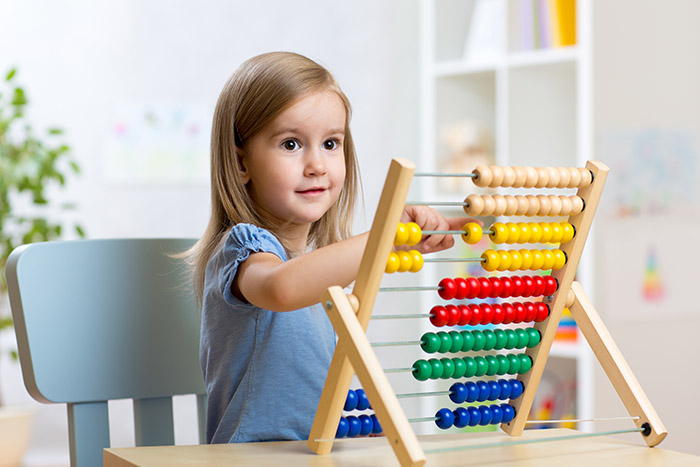Cognitive skills describes an infant’s ability to think, learn, understand, reason, and remember. From the moment a child is born, he baby absorbs information around him and starts building cognitive skills — even if it’s not evident at first. In fact, the care and experiences a baby gets from its environment can affect the development of your baby’s brain to a large extent. Each and every little experience counts — from a simple cuddle to organized play — teaches the baby about the world.
We can encourage child’s cognitive development in the areas of memory, concentration, attention and perception by incorporating simple activities into our everyday routine.
1. Sing-a-longs:
Sing songs along with your baby and encourage him to sing or simply respond to you. Play the favorite songs and music at home and also while driving regularly and he may eventually start singing along.
2. Peek-a-Boo:
We all play some version of this game with a scarf, pillow, etc. But, do we know that an infant who can play this game has reached an important cognitive milestone. This significant milestone is a sign that memory is developing.
3. Make a Toy Box:
Fill a small box with various objects made of different materials, such as metal, plastic, and wood.Simply let the baby dump out the box and explore all the contents it has. He will notice they feel different, and also let him hit the objects with a spoon, he’ll love to listen to the different sounds they make.
4. Exposure to texture:
Let your baby play with a pile of differently textured clothes and linens. Let the child explore the differences between smooth cotton sheets and nubby cotton towels, between leather and cloth belts etc.
5. Identifying Noises:
Have your child identify noises that he comes across throughout the day, for instance a bird singing, a car horn, running water or the dishwasher, etc. He will gradually understand how sounds relate to objects in his everyday environment.
6. Cause and Effect with Container Play:
Infants enjoy putting objects in and out of containers. This also helps encourage cause-and-effect thinking. They enjoy this activity most with kitchen utensils and other household items.
7. Playing with Alphabets:
Help your child identify letters by singing along to the “Alphabet Song,” reading out books about the alphabet and identifying and playing with alphabet puzzles.
Playing with the little ones is always a sheer bliss for parents. And for infants, play is simply a means through which they learn about the world around them.
The best thing about above activities is that they do not need any extra investment, and can be played anywhere, at home or while traveling.
So have fun with your bundle of joy and next time when you get annoyed by the mess done by your tiny tots, remember it’s a step towards their cognitive development.

